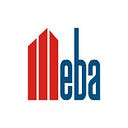The Future of Energy Management: Exploring the Potential of Smart Power Meters
Smart energy meter are sophisticated devices that monitor and record real-time power, gas, or water use. Smart meters, as opposed to standard energy meters, are outfitted with cutting-edge technology to collect extensive information about energy consumption. It needs human reading and gives limited data. These meters frequently have communication features that allow for two-way communication between the meter and the utility provider. This communication can take place through wired or wireless networks, allowing for continuous data transfer and processing.
Advantages of Smart Energy Meters
Data that is accurate and up to date: The capacity of smart energy meters to offer precise and real-time data on energy use is one of its major advantages. This data is available to both customers and utility providers, allowing them to make educated decisions regarding energy use and maximize efficiency.
Energy Consumption Monitoring: Smart meters enable users to more efficiently monitor their energy consumption. Individuals with access to extensive data can discover patterns, peak use hours, and even particular items that contribute to excessive energy consumption. This information assists customers in changing their behavior and implementing energy-saving techniques, resulting in lower energy costs and a more sustainable lifestyle.
Electric meter reduces the need for manual meter readings and anticipated bills, resulting in more efficient billing and tariff structures. Smart meters capture real-time data, allowing for accurate invoicing based on actual energy use. Furthermore, utility providers can implement dynamic pricing models and time-of-use tariffs to encourage consumers to shift their energy consumption to off-peak hours when demand is lower. This strategy promotes energy saving and assists in balancing the grid’s load.
Remote Monitoring and Control: Through smart meters, utility suppliers may remotely monitor and regulate energy use, reducing the need for physical inspections. This feature lowers field visit expenses and allows for faster response times to concerns such as power outages or abnormalities in energy supply. Furthermore, users may remotely manage certain appliances or receive notifications regarding excessive energy usage, promoting better control and energy-conscious decision-making.
Integration of Renewable Energy Sources: A power meter is essential for integrating renewable energy sources into the grid. With the growing use of solar panels and wind turbines, smart meters make it easier to monitor and control the energy provided by these sources. They allow for greater synchronization of energy production and consumption, guaranteeing more effective use of renewable energy and reduced reliance on traditional fossil fuel-based power generation.
